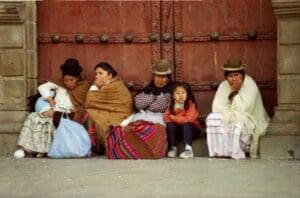Bolivia to Fight Food Shortage with Non-GMO Seeds

State-owned farms and companies will provide non-genetically modified seeds and fertilizers to the people of Bolivia, says a new law signed into effect by Bolivian president, Evo Morales.
In what Morales is calling a “food revolution,” over the course of the next decade, the government will invest $5 billion, mostly in supporting small-scale farmers and growers to help establish an inclusive, holistic food system, eliminating the country’s need to purchase GMO seeds from companies like Monsanto that are eager to expand their presence in South America.
Protests in Bolivia have erupted recently out of concern over the excessive exportation of the highly nutritious regional grain, quinoa, which has become a natural-foodie darling in the U.S., and popular among those who follow a wheat and gluten free diet. While exporting the sought-after grain brings revenue to the country, locals are forced to eat lower quality foods instead of regional staples. Biotech companies sell their GMO seeds cheap, making it hard for some farmers to resist in light of the limited access to indigenous grains that are being shipped to the U.S.
Morales’ sustainable vision for the nation is attracting both praise and criticism for being idealistic as the nation joins their neighbors, Peru, in a move away from GMOs; they’re also committing efforts to an heirloom seed-saving program and a long-term redevelopment plan that is expected to reduce Bolivia’s dependence on fossil fuels.
Bolivia is just one of many nations around the world facing potentially disastrous food shortages beyond their imminent vulnerabilities, and this program is anticipated to support a strong infrastructure of development and sustainability measures that will lead them into economic prosperity and a return to a healthy embrace of indigenous food and culture.
Keep in touch with Jill on Twitter @jillettinger
Photo: archer10 (Dennis) (BUSY)

